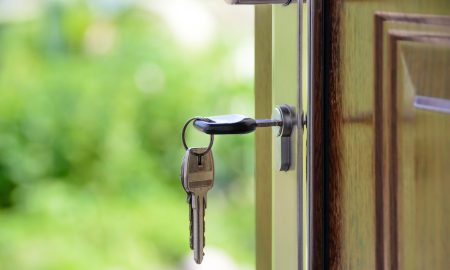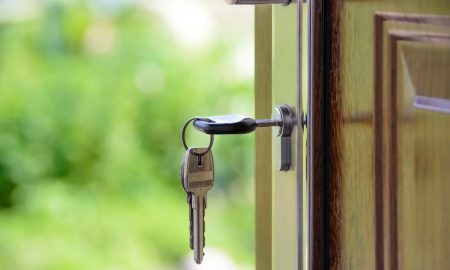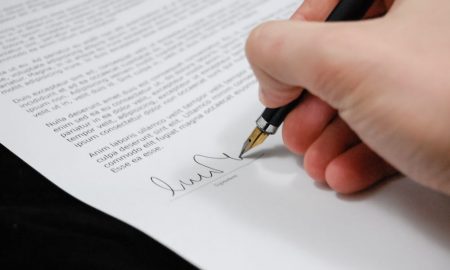
Loan Default: Everything You Need to Know

Loans are a great way to fulfill your financial obligations or support your goals. They come in handy in times of urgent need or when you plan to invest in something substantial. As you take the loan, you bear the responsibility of repaying it within a definite time.
If you fail to repay the loan on time, it results in loan default, and it can put us in serious trouble.

Karolina / Pexels | With taking loans comes the responsibility of paying them back.
What Is a Loan Default?
Loan default means the failure to repay the loan amount on time. Every loan has a certain repayment schedule defined by the lending institution. When you take a loan, you accept to pay back the borrowed amount with interest within the given schedule. If you fail to repay the loan amount within that schedule, you are considered a defaulter.
What Happens When You Default on a Loan?
When you default on a loan, it mainly affects your credit score. A declined credit score makes it hard to access credit facilities in the future. The lender may also undertake certain legal measures to recover the unpaid loan amount. The lender can use the collateral put up for the loan.
If there is no collateral, the lender can take the legal route and take measures such as wage garnishment, levying bank accounts, or even taking legal action.

Kampus / Pexels | Loan default simply means not being able to repay your loans or mortgages.
How to Avoid Defaulting on a Loan?
Being financially responsible is the best way to avoid defaulting on a loan. Maintain a budget, save regularly, and make payments on time. Always have a backup plan if you feel you may not be able to meet the repayment schedule. Thus, you can speak to the lending institution and try to work out alternative repayment solutions.
Consequences of Loan Default
Late or missed loan repayments can create a strain on your financial stability. It can lead to a significant decrease in your credit score, which makes it hard to access any credit facility you may need in the future. All open disputes or litigation on unpaid loans negatively affect your credit score.
You may even undergo severe consequences like a foreclosure on a mortgage or eviction from your residence.

Mikhail / Pexels | To avoid loan defaults, make sure to have enough savings.
What to Do If You Can Not Repay Your Loan?
Defaulting on a loan is not the end of the world. However, you can always come up with alternative repayment solutions to avoid legal action. You can contact the lender and explain the situation to them. Apart from that, you can make an alternate payment plan or a payment deferral plan with the lender. The most important thing is to communicate with the lender and work out alternative options to meet your obligations.
Parting Thoughts
Defaulting on a loan is not a pleasant experience, and it can create financial havoc in your life. To avoid defaulting on a loan, it is helpful to be financially responsible, not overspend, and have a backup plan in case of any unforeseen circumstances.
Nonetheless, there are provisions to help us recover from loan default. Thus, it is always good to communicate with the lender and have an alternative payment plan in place. The most important thing is to learn from your mistakes and ensure the timely repayment of loans.
More in Pocket Change
-
`
Why You Need to Think Twice Before Buying a House
So, you have been scrolling through real estate listings, envisioning your dream kitchen, and even bookmarking paint colors for the nursery....
November 26, 2023 -
`
Santo Spirits: Sammy Hagar and Guy Fieri’s Joint Venture
In the world of business partnerships, some combinations might seem unconventional at first glance. But when you delve deeper into the...
November 16, 2023 -
`
Everything You Need to Know About Mortgage Rate Lock
You have probably embarked on the exciting yet nerve-wracking voyage of purchasing a home. Amidst the sea of paperwork, open houses,...
November 9, 2023 -
`
7 Effective Ways to Make Your Business More Sustainable
In an age of rising environmental consciousness, making your business more sustainable isn’t just a trend; it’s a necessity. Sustainable practices...
November 3, 2023 -
`
Housing Market Going Up? Then Why Not Rent?
“Buy a house! It is the best investment!” How many times have you heard that? Probably enough to make a drinking...
October 29, 2023 -
`
Surprising! Celebs Who You Didn’t Know Had a Master’s Degree
When it comes to celebrities, we often associate them with glitz, glamour, and blockbuster movies. But did you know that some...
October 17, 2023 -
`
Navigating the Housing Maze: The 7% Mortgage Rate Quandary
If there is one thing that this year has thrown our way (apart from those fascinating tech gadgets we did not know...
October 12, 2023 -
`
Where to Buy a House in the U.S With a $100K Salary
Got a cool $100,000 annual paycheck in your pocket? Cheers to that accomplishment! With such a financial cushion, dreams of homeownership...
October 6, 2023 -
`
The “Grave” Housing Crisis Forcing U.S. Homeowners to Sell Their Houses
Every culture has its dreams and aspirations. For those living in the United States, it has traditionally been an idyllic house, spacious and...
October 1, 2023















You must be logged in to post a comment Login